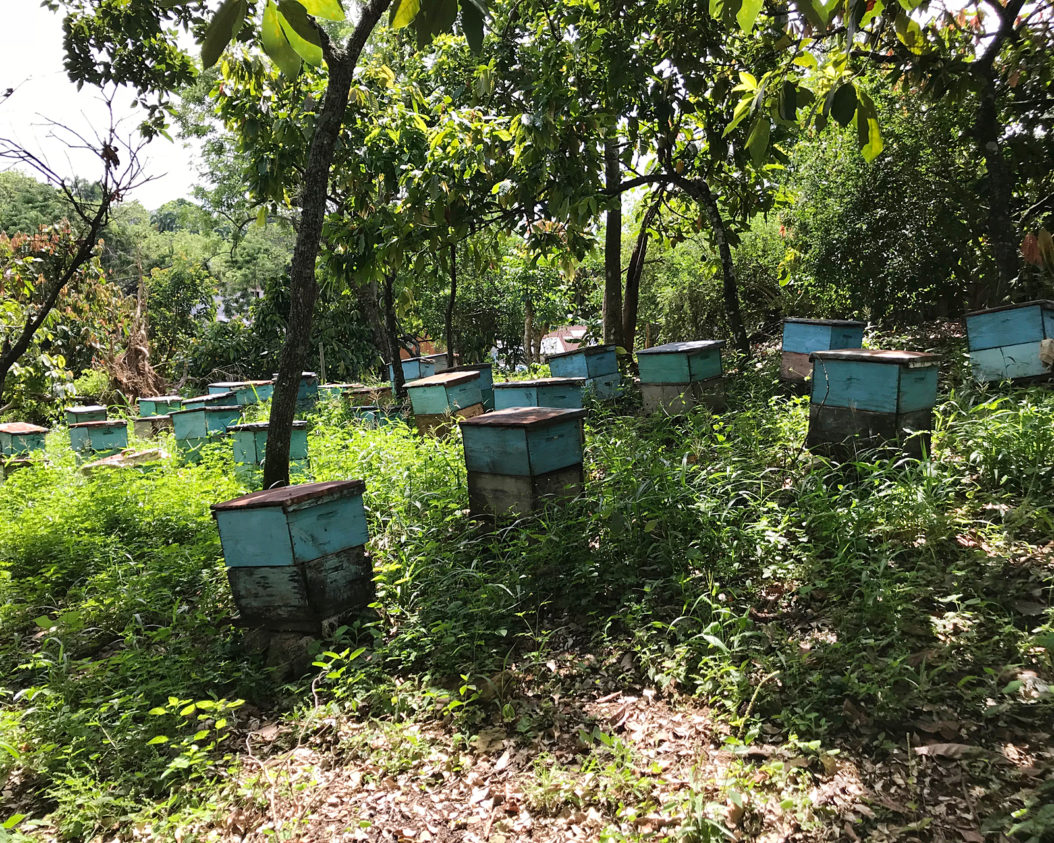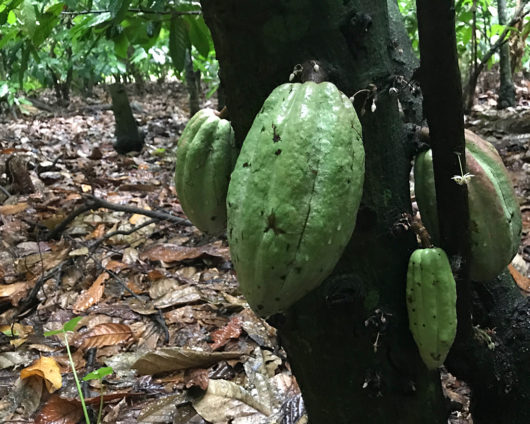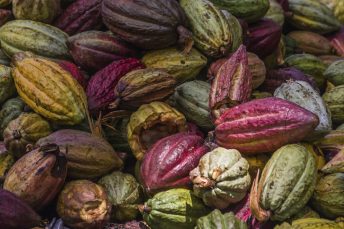Do bees secure
our chocolate supply?
An excursion into the fascinating world of pollination
Text:
Alexander Kuhlmann
Photography:
© Alexander Kuhlmann
20 May 2021

Today, on international World Bee Day (20 May), we dedicate our thoughts to all the little hummers that are so immensely important for our ecosystem. As pollinators, they ensure the maintenance of a healthy flora and are therefore of vital importance to us humans. Today, we chocolate manufacturers are therefore particularly asking ourselves whether bees also have an influence on the spread of the cocoa plant. The answer is sheer astounding!
Of course, the cocoa tree also lives from pollination. The more of its blossoms are pollinated, the more fruit ripens on it. According to a study by scientists at the University of Göttingen (Germany), the intensity of pollination is even more important for the harvest yield than an optimal supply of the cocoa tree with water, light and nitrogen. So is the bee the decisive instance in the value chain that secures all our chocolate supplies? The answer beforehand: no, unfortunately it is not.
The pollination of cocoa blossoms – and this will certainly surprise some people – is actually not done by bees, but by tiny mosquitoes. More precisely, gnats of the genera Forcipomyia and Euprojoannisia, which live in the damp, rotten undergrowth in the shade of the cocoa trees. They are only 1-3 millimetres in size and fit into the narrow blossom heads of the cocoa tree, which a bee could not enter at all. It is therefore extremely important – and this is where organic cultivation scores again – that cocoa farmers refrain from using any kind of mosquito repellent.

So the bee has no significance for the preservation of the cocoa plant? Perhaps not directly. Nevertheless, it is – at least for organic cocoa cultivation – of great importance on another level. Since organic cocoa is basically cultivated in mixed cultures to ensure the biodiversity of flora and fauna, the bee makes its contribution by pollinating everything that thrives around the cocoa tree, thereby creating perfect conditions for it: shade trees, nutrient-rich soil, plants (such as banana bushes or papaya trees) that can influence the flavour profile of the cocoa. To take advantage of this, many cocoa farmers domicile bees in their cocoa forest (see cover picture) and even have another sideline through beekeeping. And quite honestly: rainforest honey tastes just fantastically different. You should definitely give it a try.
World Bee Day has been celebrated on 20 May since 2018. On this day, the pioneer of modern beekeeping Anton Janša was born in 1734. The holiday was proposed by Slovenia within the United Nations Organisation and adopted on 20 December 2017. [Source: Wikipedia]
Verwandte Artikel
The Chocolate Journal

